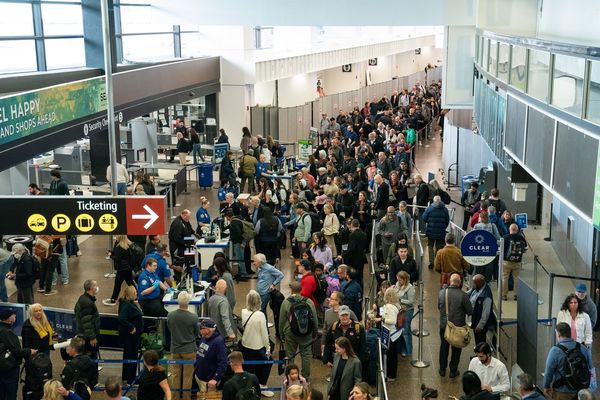
The United Nations’ anti-torture watchdog has urged Australia to curb the extraordinary number of people awaiting trial or sentencing in jails and ban the use of spit hoods.
A report, released by the UN subcommittee on the prevention of torture (SPT) this week, also called for the limiting of routine strip-searches. It comes after the body visited Australia in October last year but terminated the visit after it was prevented from entering detention facilities in New South Wales and Queensland.
The report said its visit uncovered “extraordinary number of persons deprived of their liberty on remand” in Australia, making up to the 70% of prison population in some locations visited.
It said this was partly due to the reversal of the presumption of bail for certain offences, and that this disproportionately affected Indigenous people and other vulnerable groups.
The report recommended Australian states and territories enact legislative changes to ensure holding people on remand was always a last resort.
Steven Caruana, the coordinator of the optional protocol to the convention against torture (Opcat) network in Australia, said the UN’s recommendations were common sense.
“They go to the heart of decent and humane treatment of people in places of detention,” he said.
“This shows a clear picture that a lot of what we do in Australia does not meet international best practice and we need to lift the bar.”
The visit – which included inspections of a number of places of detention – was part of Australia’s obligations under Opcat, which the Turnbull government ratified in 2017.
Places visited included Victoria’s Dame Phyllis Frost Centre and Port Phillip prison, and youth justice facilities in Tasmania, the Northern Territory and Western Australia.
The report said that in the Banksia Hill detention centre in WA, the subcommittee observed “cells with mattresses on the floor, and no running water, working showers or televisions”.
“Children were left alone in their cells for up to 23 hours per day, amounting to de facto solitary confinement, with lighting in cells controlled from outside,” it said.
The report said in the NT’s Don Dale youth detention centre, children were “housed in rooms covered in graffiti, with insalubrious bed sheets”.
It recommended a complete ban on spit hoods, describing the device as “inhuman and degrading treatment”, and said routine strip-searches should be limited to exceptional cases.
The use of restraints in places of detention was “largely unregulated and insufficiently documented” through the use of body-worn cameras, the report said. It recommended restraints be limited to situations when “absolutely necessary” and subject to strict regulation.
“The subcommittee observed the use of handcuffs, belt tethers and shackles as a matter of routine, including on children, without individual determination as to the circumstances or the necessity and proportionality of the use of such tools and with little, if any, external oversight,” the report said.
The UN subcommittee said Australia should also amend its Migration Act to opt for non-custodial measures over mandatory immigration detention.
Australia in January missed its deadline to meet its obligations in prison oversight under Opcat, meaning the country could be placed on a UN blacklist alongside countries like South Sudan and the Democratic Republic of the Congo.
The treaty requires states and territories to designate independent bodies to act as domestic watchdogs and inspect places of detention like prisons, youth justice facilities and police cells. Australia’s three most populous states – NSW, Victoria and Queensland – are yet to designate their bodies, amid a funding dispute with the commonwealth over their establishment.
Australia signed the UN treaty after the royal commission into juvenile detention in the NT, sparked by revelations of abuses at the Don Dale youth detention centre.
In its response to the report, the Australian government pointed to programs some states and territories had to divert people away from remand. It said the majority of states and territories have legislation that limits the use of restraints on children and said spit hoods were no longer used in federal justice settings or in immigration detention facilities.







